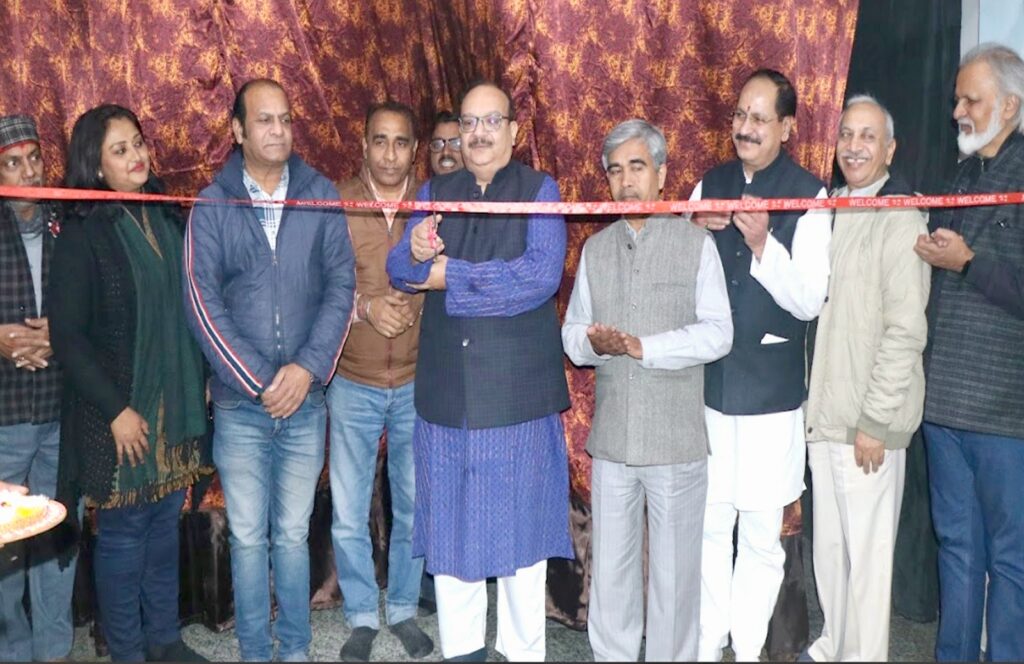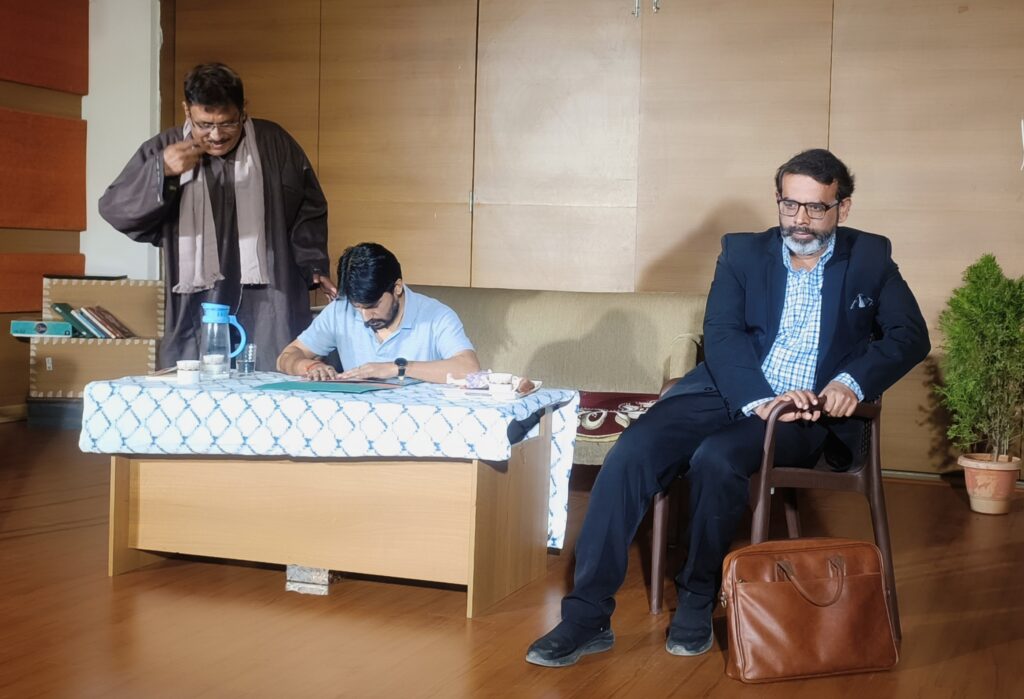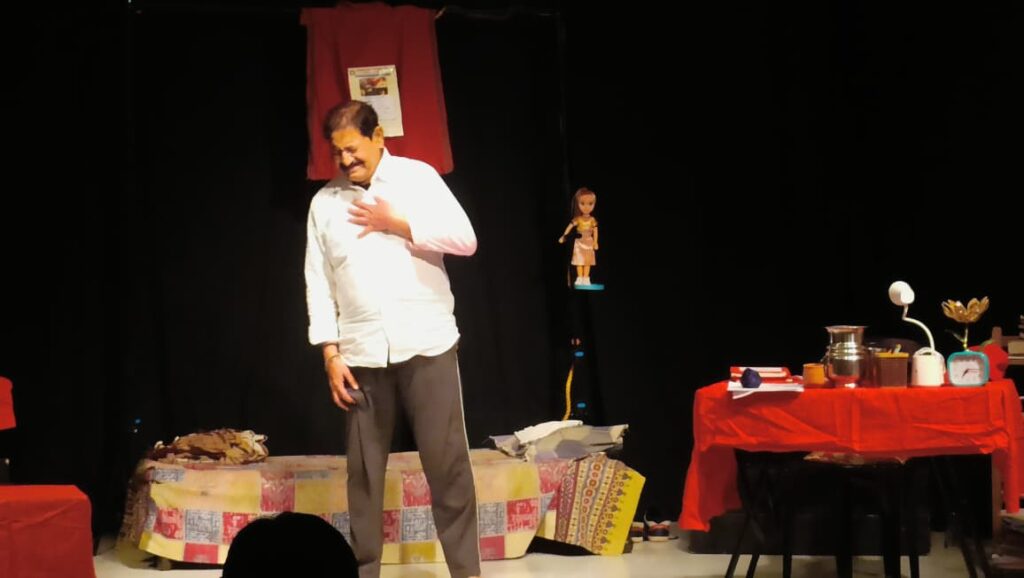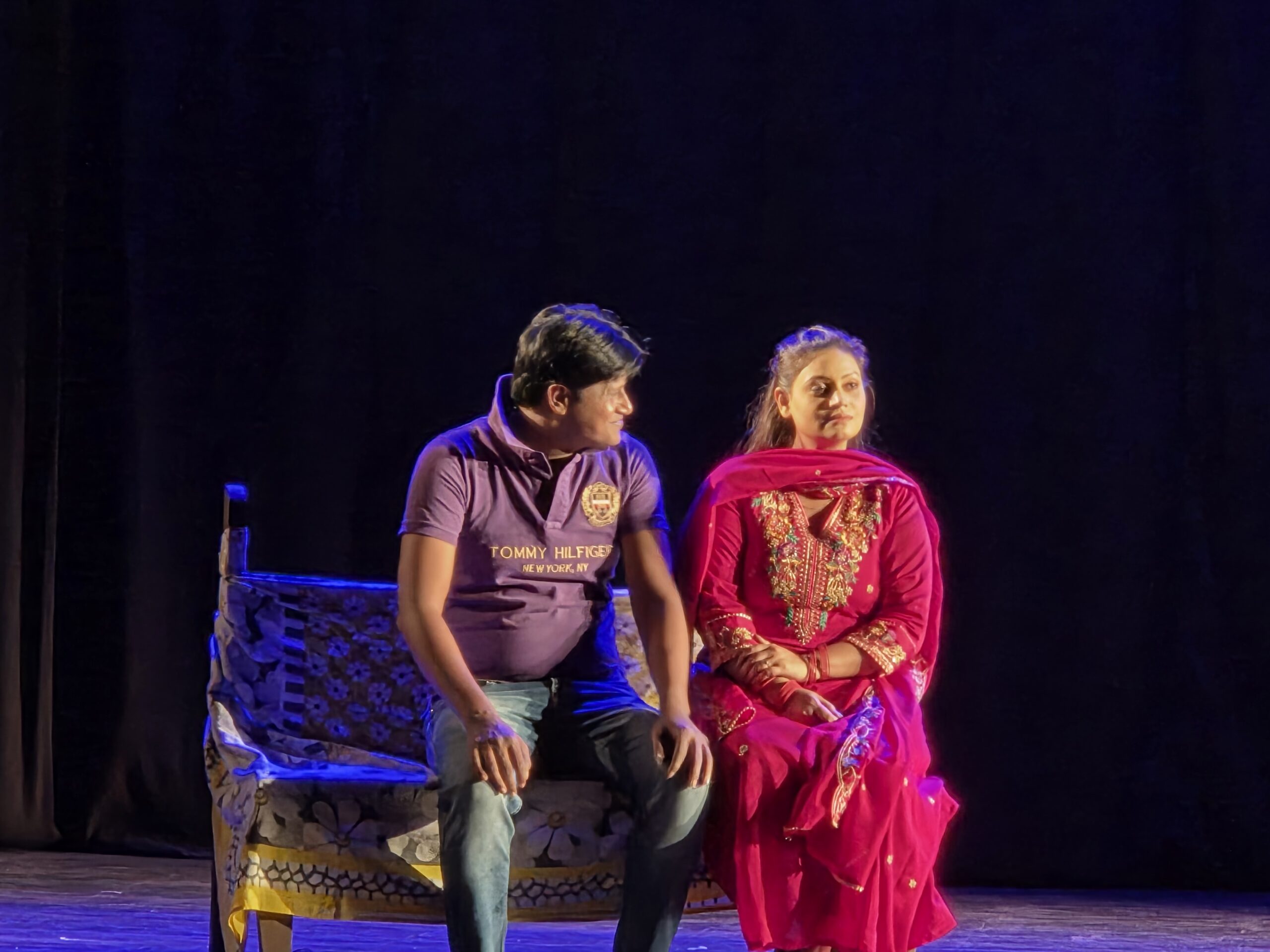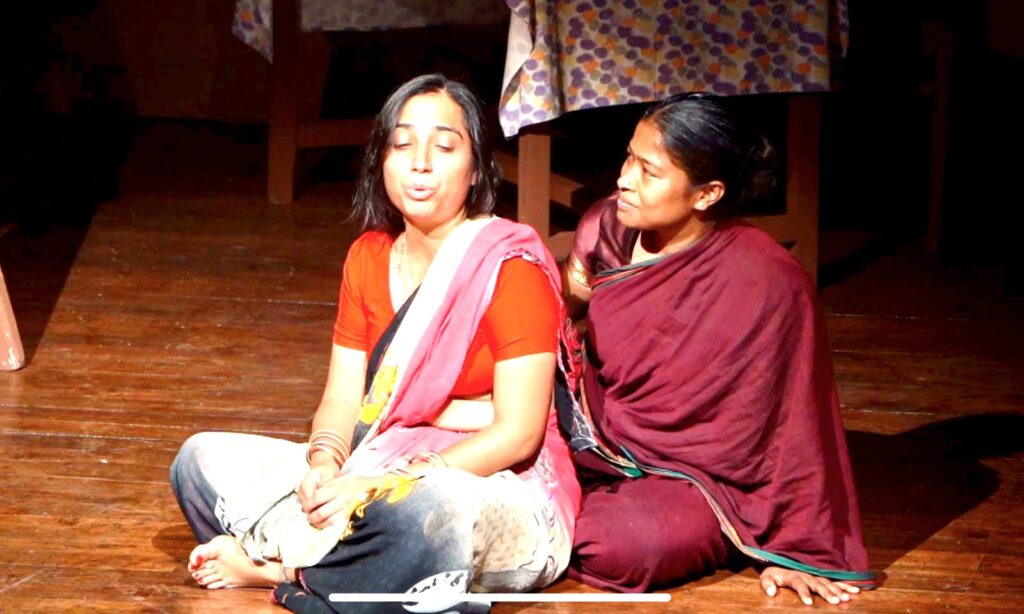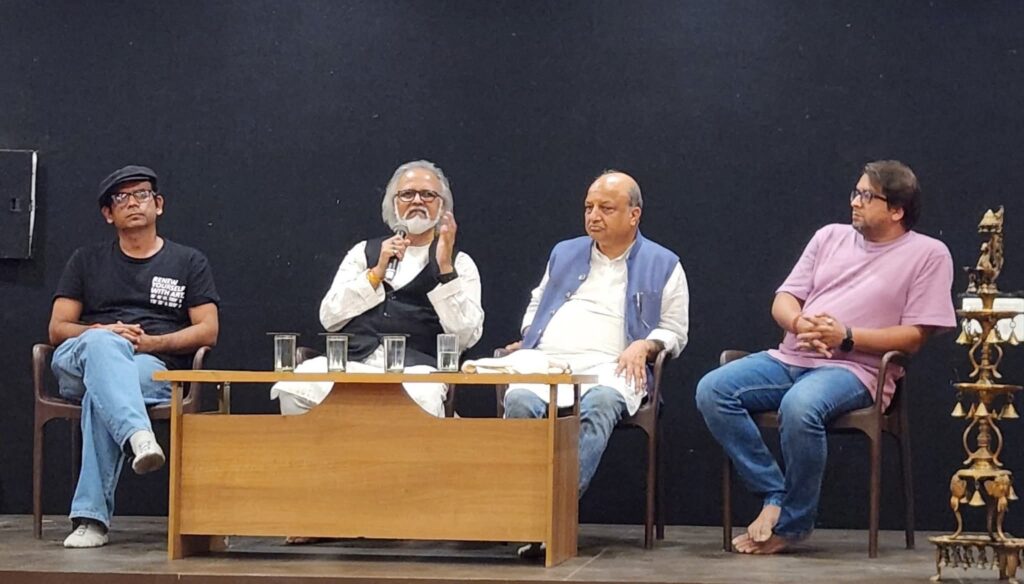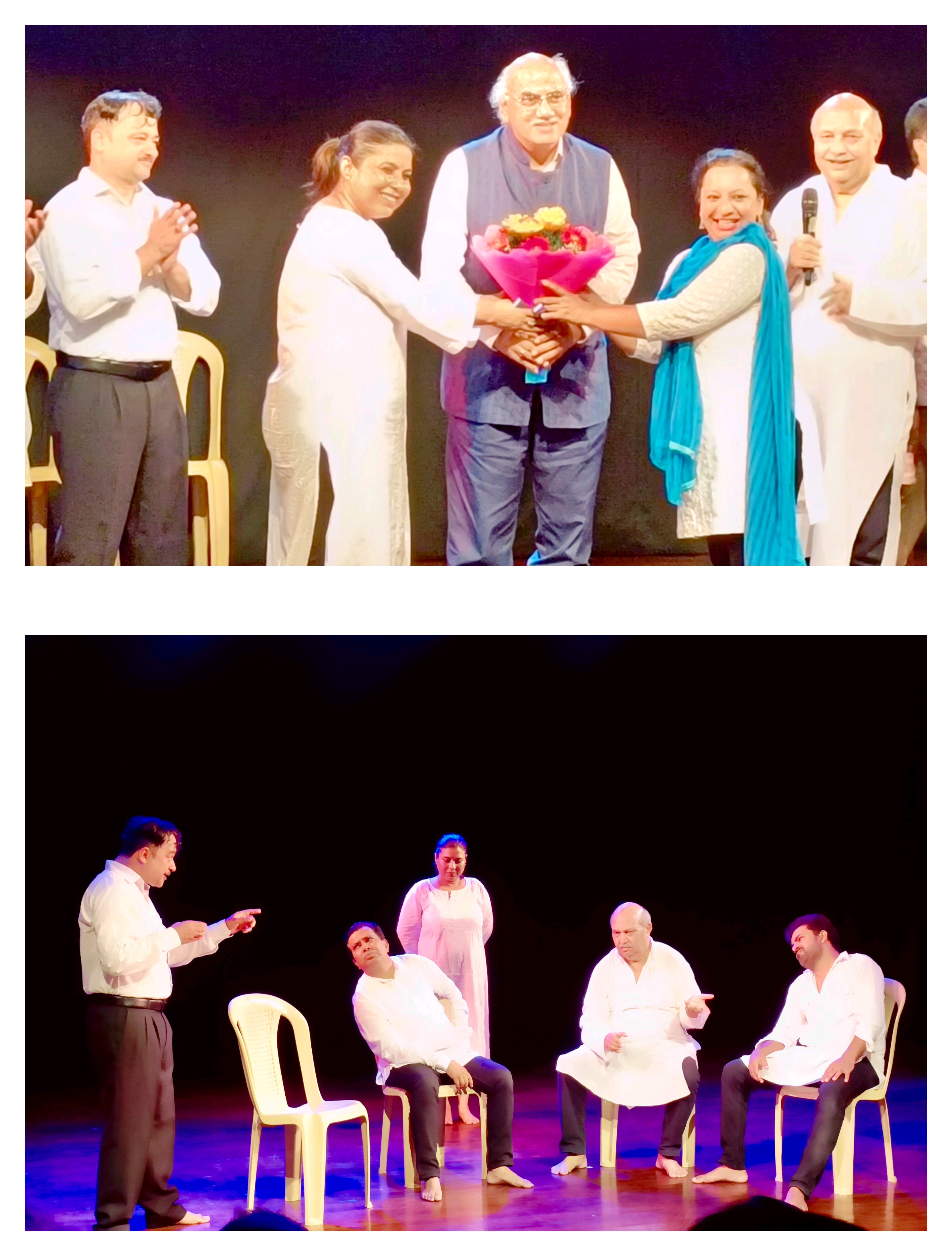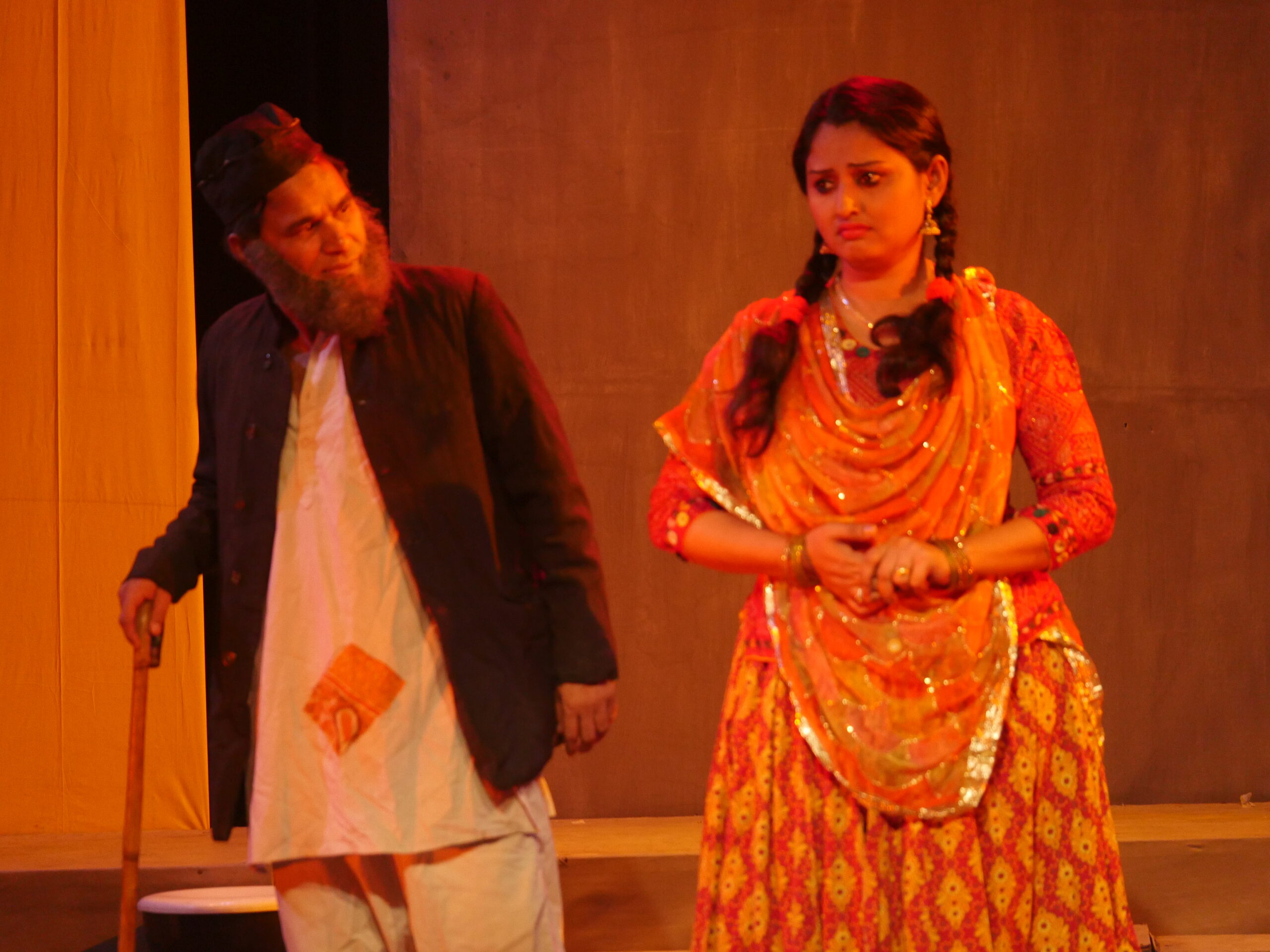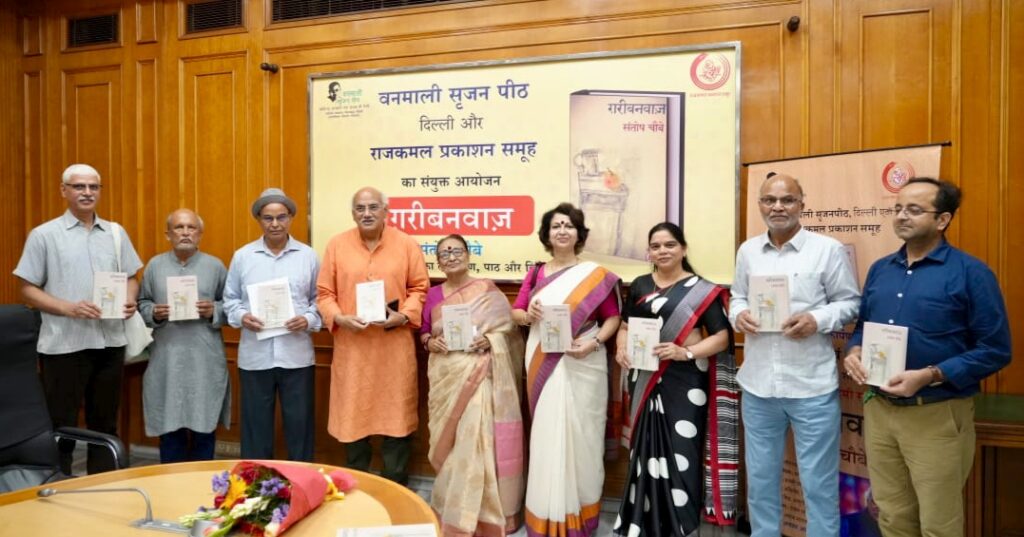Anand Math” at Hindi Academy: An Ensemble Journey of Conscience, Sacrifice, and National Awakening
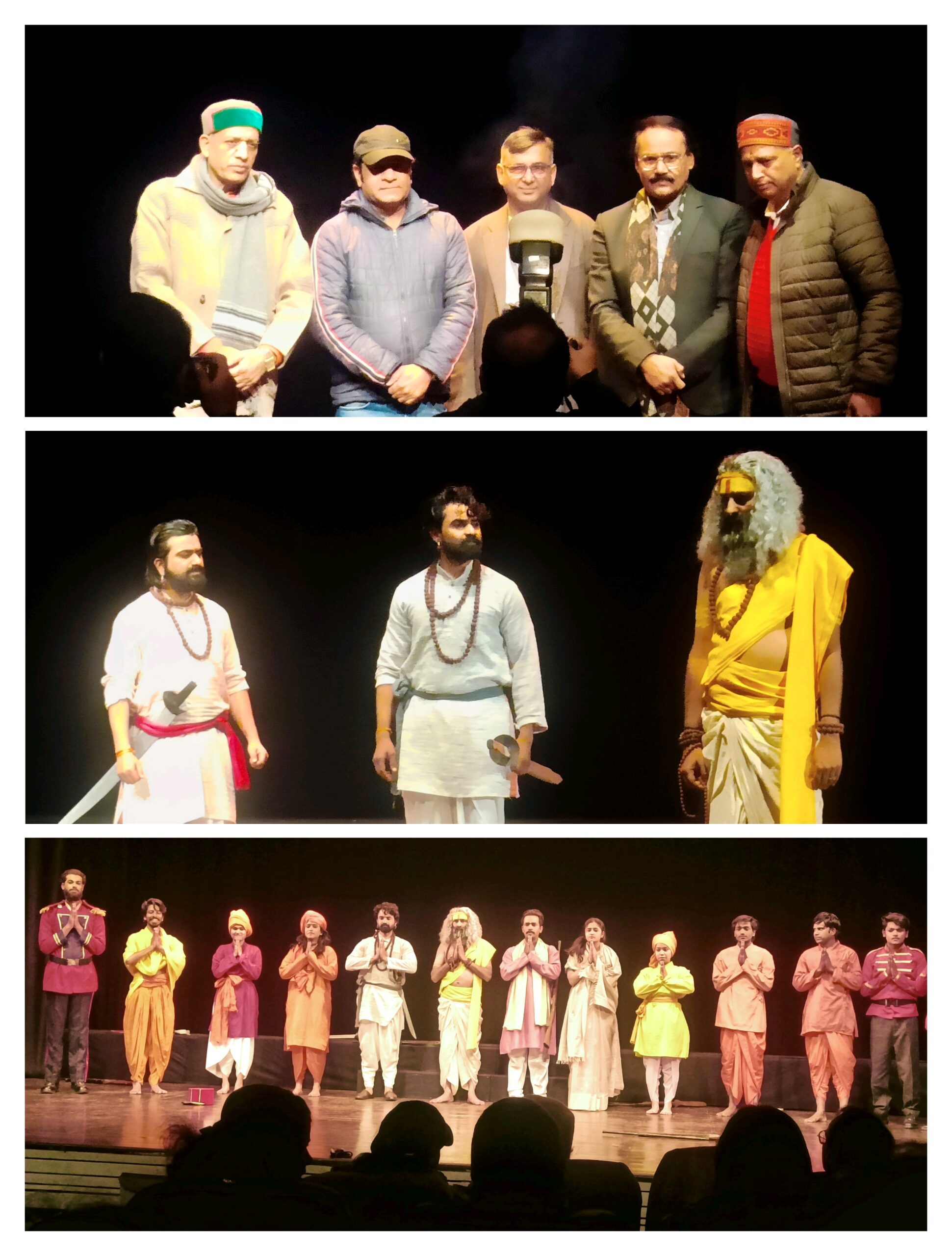
Presented under the cultural initiative of Hindi Academy, Delhi, Anand Math by Theatre Actor’s Studio, staged on 6 January at Shri Ram Centre, Mandi House, unfolded as a profound, disciplined, and ideologically resonant theatrical experience. Based on the timeless novel by Bankim Chandra Chattopadhyay, the production rose beyond historical retelling to become a living reflection on sacrifice, moral conflict, and collective awakening
The adaptation by Ashraf Ali retains the philosophical gravitas and nationalist spirit of the original text while shaping it into a theatrically fluid narrative. Personal stories are intricately woven into the larger political and spiritual struggle, allowing the audience to engage with the material at both emotional and ideological levels.
Conceptualization and Direction by Rajesh Bakshi emphasize restraint, clarity, and ensemble harmony. Eschewing ornamental spectacle, Bakshi builds the production on inner discipline, rhythmic staging, and collective physicality. His direction reinforces the idea that Anand Math is not a tale of isolated heroism, but of shared resolve—an approach deeply aligned with the ethos of the Sannyasi movement.
The performance opened with a traditional invocation, immediately situating the audience within the spiritual and cultural world of the play. The presence of eminent guests— Former Hindi Academy Secretary Dr. Hari Suman Bisht, Senior Theatre Practitioner Shyam Kumar, Hindi Academy Secretary Sanjay Garg, along with Jagdish Sharma and Mridul Awasthi—added institutional dignity and cultural depth to the evening. The Hindi Academy platform itself underscored the literary and historical significance of the production.
Set in late 18th-century Bengal, amid famine, colonial exploitation, and social upheaval, the play traces the emergence of the Sannyasi movement. Within this expansive ideological canvas, the characters of Mahendra Singh (Raju Raje Singh) and Kalyani (Ritika Mishra) form the emotional spine of the narrative. Mahendra’s internal struggle—caught between domestic responsibility and national duty—is portrayed with restraint and quiet intensity. His gradual moral awakening anchors the audience’s emotional journey.
Kalyani, portrayed with sensitivity and dignity, emerges as a pillar of emotional strength. Ritika Mishra lends the character a composed resilience and silent courage, transforming Kalyani into a moral compass rather than a passive presence. Her emotional endurance and spiritual clarity subtly guide Mahendra’s transformation and deepen the human dimension of the play.
The ideological axis of the production is embodied in Satyanand (Nikhil Sahu), whose composed authority, ascetic discipline, and philosophical depth give voice to the spiritual foundation of the Sannyasi movement. His presence lends the play gravitas and ethical clarity. Characters such as Jivanand (Vikrant Sharma) and Bhavanand (Naveen Kumar) further reinforce the collective strength of the movement through performances rooted in physical discipline and controlled intensity.
An equally significant presence is Shanti, portrayed by Pragya Singh Rawat, whose performance brings a nuanced blend of emotional vitality and ideological commitment. Shanti functions as a bridge between personal emotion and collective purpose. Pragya Singh Rawat’s expressive clarity, controlled physicality, and sustained stage energy lend the character depth and conviction. Her presence in ensemble scenes adds momentum, while her individual moments reflect inner resolve and quiet determination, making Shanti an integral force within the narrative structure.
The entire ensemble—including Muskan Bhandari (Bhabhi), Disha Negi (Nimai), Akshay Dobra (Dheeranand/Guard), Akshat Avi Kishor (Captain), Hemlata (Mata), Saurabh Kumar (Lindley), and Saurabh, Sachin Gehlot, and Nitesh Tiwari as peasants, soldiers, and dacoits performed with remarkable cohesion. No character dominates; instead, each contributes to a unified dramatic fabric through disciplined body language, focused expression, and shared rhythm. The collective energy, especially in group scenes, stands out as the production’s greatest strength.
Choreography by Neelakshi Khandkar provides a powerful kinetic language to the play. The symbolic and rhythmically precise movement patterns—particularly in the Sannyasi formations—visually reinforce themes of unity, sacrifice, and spiritual discipline.
Lighting Design by Rahul Chauhan sensitively shapes the emotional landscape, while music by Shivankar Deshwal infuses the performance with restrained intensity, enhancing both dramatic tension and ideological resonance.
In its entirety, Anand Math stands as a compelling example of ensemble-driven theatre, where individual journeys—especially those of Mahendra, Kalyani, and Shanti—intersect meaningfully with a larger national and spiritual vision. Presented on the prestigious platform of Hindi Academy, this production reaffirms theatre’s enduring power to engage history as living consciousness.
Anand Math is not merely a performance—it is a collective meditation on duty, sacrifice, and conscience, leaving the audience reflective, stirred, and deeply moved.
